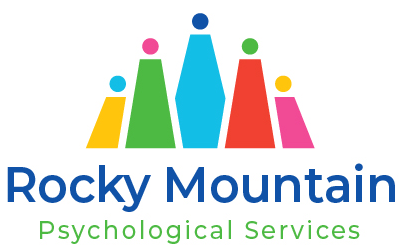I’m Cassandra Hillman white, President of the College of Alberta Psychologists Council, and the owner of RMPS. It is a privilege to speak with you today from the vantage point of both a child and adult psychologist and someone who has witnessed families navigate the many transitions life brings. One of the most important acts you can perform as a parent is to understand what is happening in your family, to recognise those moments when things feel “off,” and then to reach out for help, not as a sign of failure, but as a strength in caring for your family’s emotional health.
Below, I’ll walk you through common triggers that bring parents in for a consultation, how you might recognise them in your own family, and then a clear step-by-step guide for how RMPS can support you.
Understanding Common Triggers
1. Divorce or Separation
Divorce is one of the most common reasons families seek consultation, not because parents or children are “broken,” but because it marks a major change in a child’s emotional world.
In a 2011 study published in Child Development, psychologist E. M. Cummings et al. observed that children exposed to ongoing parental conflict during and after separation showed higher levels of emotional insecurity and behavioural difficulties over time.
What this tells us is that it’s not divorce itself that harms children. It’s how conflict is managed and how communication continues between parents.
What you can do:
Keep routines steady, talk honestly with your child, and assure them that both parents still love them. If you notice persistent sadness, anger, or withdrawal, it may help to involve a psychologist who can provide a safe space for your child to process these changes.
2. Illness or Loss of a Family Member
When a parent or grandparent becomes ill, or when a loved one dies suddenly, children experience a unique kind of grief. They may not fully understand what’s happening, but they feel the absence deeply.
A study by Christ, Siegel, & Christ (2002) in the Journal of the American Academy of Child and Adolescent Psychiatry followed children who lost a parent to illness and found that those who received early psychological support adjusted better emotionally and academically within the first year.
What you can do:
Encourage open conversations about illness and death using language your child can understand. Avoid “hiding” the truth. Children can sense emotional changes around them. Sometimes children don’t have the language to express what they’re feeling or experiencing, sometimes they don’t think to express their thoughts and feelings to family members, and sometimes they might be hesitant to express their feelings maybe due to confusion or concern that it might be more upsetting to those around them.
3. Arrival of a New Baby
The birth of a new sibling is a joyful milestone, but for older children, it can also stir up feelings of jealousy or confusion.
In a 2014 longitudinal study in Developmental Psychology, Brenda Volling et al. tracked 241 firstborn children across the transition to siblinghood. They found that emotional outbursts, sleep issues, and clinginess often increased in the first few months, but that supportive parenting and positive routines helped children adjust smoothly over time.
What you can do:
Make time for one-on-one moments with your older child, validate their feelings (“It’s okay to miss having all the attention”), and help them feel involved in caring for the new baby.
4. Sibling Rivalry
Every family has moments of “He started it!” and “That’s not fair!” But when rivalry feels constant or emotionally charged, it may be a sign that your children are struggling with deeper feelings often related to family transitions, changes in attention, or stress.
A 2005 study by Kramer & Kowal in Child Development found that sibling warmth and parental involvement predicted fewer adjustment problems even in high-conflict households.
What you can do:
Set consistent boundaries, model calm conflict resolution, and encourage empathy (“How do you think your sister felt when that happened?”). If conflict feels stuck, family sessions can help reset patterns.
5. Developmental Questions and Toileting Issues
Toileting regressions or other developmental setbacks can be distressing, but they often signal emotional stress or transition rather than a developmental “problem.”
Children who’ve experienced big life changes such as a move, new school, or family loss may temporarily revert to earlier behaviours for comfort.
What you can do:
Stay patient. Avoid punishment or pressure. Focus on emotional reassurance. If challenges persist for more than a few weeks, a child psychologist can help you uncover what your child’s behaviour is communicating.
6. Child Care and School Transitions
Changes in child care, starting kindergarten, or moving schools can all shake a child’s sense of security.
A 2010 longitudinal study by Rimm-Kaufman et al., published in Early Childhood Research Quarterly, found that children who experienced smooth, supportive transitions into kindergarten showed stronger social skills and less anxiety during the school year.
What you can do:
Visit new settings together, talk about what’s coming, and acknowledge your child’s feelings (“It’s okay to miss your old teacher”). Emotional preparation helps children approach new environments with confidence.
How to Seek Help at RMPS: A Step-by-Step Guide
At RMPS, our goal is to make seeking support as clear and compassionate as possible. Here’s how you can begin:
Step 1: Recognize and Reflect
Notice changes in mood, behaviour, or family harmony. Ask yourself, What’s changed recently? or When did this start?
Simply recognizing that something feels off is the most important first step.
Step 2: Reach Out
You can contact RMPS through our website or by calling our office. Our intake coordinator will listen carefully and help match you with a psychologist experienced in your child’s age and needs whether that’s coping with loss, managing behaviour, or adjusting to change.
Step 3: The First Consultation
During the first session, we’ll focus on getting to know you and your child, understanding what’s been happening, what strengths you already have, and what’s hard.
This might involve play-based approaches for children or guided conversation for parents.
Step 4: Assessment (If Needed)
Sometimes, assessment helps us better understand what’s going on. Whether that’s learning challenges, attention issues, or emotional regulation. Our psychologists use evidence-based tools and explain every step so you feel informed and supported.
Step 5: Building a Personalized Plan
We’ll work together to develop a plan that meets your family’s needs. That might include:
- Play therapy for children
- Cognitive-behavioural and other useful modalities and strategies for coping with stress, building skills, and changing perspectives
- Parent support sessions for managing transitions
- Family therapy for improving communication and connection
Step 6: Ongoing Support and Review
Progress takes time, and that’s okay. We’ll check in regularly to see what’s improving and adjust as needed.
Our team believes that therapy should feel collaborative, not clinical. You’re an active part of your child’s healing journey.
Step 7: Transition and Growth
When your child starts showing confidence, coping skills, and improved relationships, we’ll plan a gentle conclusion and talk about how to sustain progress. Some families decide on new goals to work on, others take a break, and some return for “check-ins” and that’s perfectly normal.
Why It Matters
Change is part of every family story. What matters most isn’t avoiding those transitions but it’s how you support your child through them.
Research continues to show that children who feel emotionally secure and connected to their parents handle life’s ups and downs far better, no matter the challenge.
As a parent, your willingness to notice, listen, and reach out makes all the difference.
At RMPS, we see it every day. Families who come in feeling uncertain and leave with hope, insight, and stronger relationships.
Closing Note
If you’re reading this and something resonates, maybe your child hasn’t been themselves lately, or your family has been through a big change, you’re already taking the first step.
We’re here to walk beside you, help you understand what’s happening, and guide you toward growth and healing. Contact us today at RMPS.
References
- Cummings, E. M., Goeke-Morey, M. C., & Papp, L. M. (2011). Children’s responses to everyday marital conflict tactics in the home. Child Development, 82(1), 140–153.
- Christ, G. H., Siegel, K., & Christ, A. E. (2002). Adolescent grief: “It never really hit me… until it actually happened.” Journal of the American Academy of Child and Adolescent Psychiatry, 41(8), 986–994.
- Volling, B. L., Yu, T., Gonzalez, R., Kennedy, D. E., Rosenberg, L., & Oh, W. (2014). Children’s responses to the birth of a sibling: A developmental contextual study. Developmental Psychology, 50(6), 1470–1483.
- Kramer, L., & Kowal, A. (2005). Sibling relationship quality from birth to adolescence: The role of family climate. Child Development, 76(2), 409–422.
- Rimm-Kaufman, S. E., Pianta, R. C., & Cox, M. J. (2010). Teachers’ judgments of problems in the transition to kindergarten. Early Childhood Research Quarterly, 25(2), 147–158.


